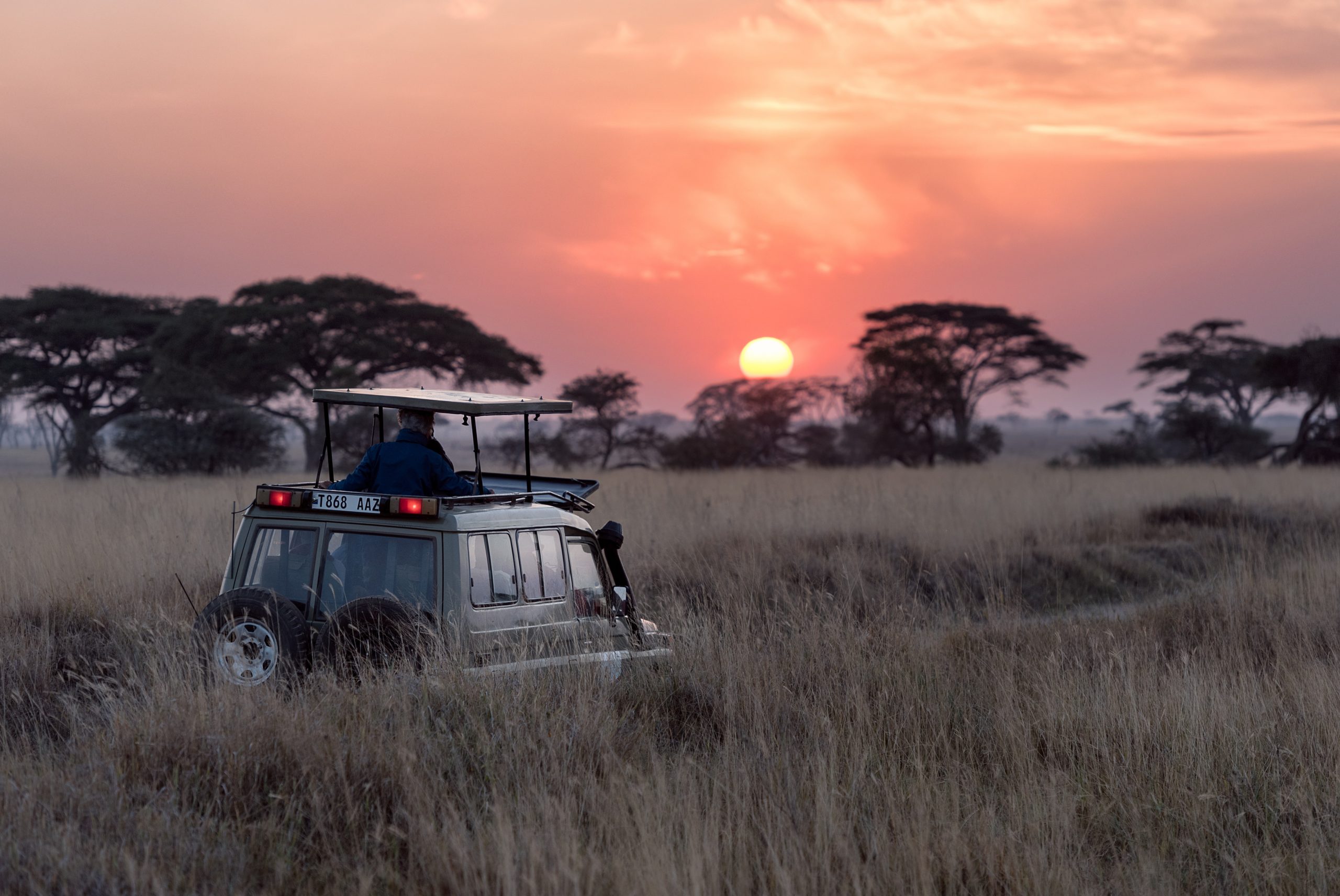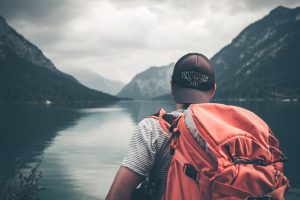Africa boasts a magnificent natural environment, rich cultural past, friendly locals, and thriving markets. Something about this interesting continent keeps you coming back. Even the hardiest explorers can find it intimidating.
We recently spent 4 months traveling through southern and central Africa, and we collated everything we either learned along the road (via misfortune or trial & error!) or wish we’d known before we left so you can have the stress-free African journey of your dreams.
Language instruction
You won’t be stuck at the airport in Tanzania because you can’t speak swahili.
Despite 1,500-2,000 native languages, English is an official language in many African countries (along with German or French in a handful!).
Don’t rely exclusively on English; master crucial phrases. Locals will appreciate it, and you’ll have a fuller experience – like when a Malawian fruit stall owner threw in a few more pieces when we tried our best Chichewa.
Locals’ personalities
Africans are some of the kindest people on the earth, notwithstanding Hollywood stereotypes. Most people are eager to discover your name, where you’re from, and why you’re coming.
You’ll likely hear “Mzungu” from folks waving from car windows or passing you on the street. Swahili literally means “one who wanders without purpose,” but it’s used to designate any white foreigner. It’s usually mentioned jokingly, so don’t get offended.
Africa is religious (Christianity and Islam are widely practiced) and conservative, so be respectful in your speech and appearance.
Border difficulties avoided
Corruption at African borders frustrates travelers. Sometimes you’ll have to wait hours for your passport to be processed without explanation or pay a bribe to a corrupt officer. Touts offer outrageous exchange rates or try to sell bangles and samosas (side note: always buy the samosas, guys).
Thanks to these tips, we were able to breeze through eight border procedures.
Knowledgeable: Before visiting Africa, check visa requirements. For visa-related questions, contact your local embassy or visit Project Visa.
Organization: While you can receive most visas at the border, doing so in advance is much easier.
Always carry extra cash. Know the exchange rate before you cross the border and bargain.
If someone seems to be holding things up to make you pay to “speed it through,” ask for your passport back firmly (but gently). If your visa passes all standards but you’re requested to pay more, decline and speak to another official.
Smile and chuckle during the procedure. That’s simpler.
Traveling
Getting from A to B is always doable in Africa, no matter where you are. Getting from A to B is another story.
Taxis, tuk-tuks, mopeds, rickshaws… If it has wheels and can travel, you can ride it. You might be on a flight or bus, in a minibus with 25 people (plus a goat or chicken! ), or in the back of a pick-up with half a village headed home from the markets.
Mini-bus travel is an African rite of passage, so embrace the uncomfortable seat and crowded surroundings to see how the natives live.
Our travel tips:
Seatbelts are mandatory.
Africa time means no punctuality.
Seating is uncertain. A fowl may peck at your head for 5 hours in the bus aisle. Embrace the adventure!
Most minibus rides are negotiable.
Large buses shouldn’t charge for luggage storage. Your ticket includes baggage? Scam!
Accommodation
From luxury safari tents where you may live like Prince Harry to snore-proof backpacker hostels, there are various places to sleep in Africa.
Many travelers opt to camp in Africa (we did!) because it’s accessible, safe, full of amenities, and cheap. What better way to make new friends than by telling campfire tales?
Larger cities have more lodging possibilities than rural areas. After a day of exploration, you’ll always find a place to rest.
Healthy living
We brought these items to stay adventure-fit:
- Malaria drugs
- Antibiotics
- Painkillers
- Antihistamine
- tablet iodine
- Cream hydrocortisone
- DEET is the greatest insect repellent.
Although African lakes look attractive, many are infected with Bilharzia. We don’t write horror stories, so we’ll let you explore that one yourself — but you DON’T want it. Before diving, ask locals.
In South Africa, Namibia, and parts of Zambia and Botswana, you can drink water straight from the tap. Head north and be careful, but iodine tablets will help.
Food: Africa’s food is wonderful. It’s typically great quality, but beware meat in isolated places without sufficient refrigeration.
Safeguarding
We felt safer in Africa than in other regions. Always do research before traveling.
Remember these tips for a stress-free journey.
Flashy jewelry and designer labels are impractical and make you a target.
Wear a money belt OR only take a day’s cash.
Be careful when using an ATM. If suspicious, move on.
Photographers travel with large cameras and lenses. They’re hidden in our bags until needed. Don’t wave yours around.
Don’t wander alone at night, especially in cities. Late-night, take a taxi or Uber.
Pickpockets exist in markets, bazaars, train and bus stations, so be careful.
Independently
Solo travelers love Africa. Openness can lead to rich experiences and amazing individuals. You’ll also discover it’s safe — male and female threats are similar to wherever else you’d travel.
If feasible, follow these tips:
- Remote travel requires caution.
- Avoid nighttime travel alone
- Governments require travel planning.
- Contact home-based members regularly.
Finances
Africa isn’t a cheap holiday; everyday prices are greater than in Asia or South America.
Transport, lodging, and meals should cost $100 per day per participant. Safaris and adventurous activities are expensive, so plan beforehand.
Africa has 54 currencies, making travel between countries complicated. Here are some tips:
Most southern African nations have ATMs and credit cards. If not, stock up at a local bank.
When leaving a country, exchange leftover cash at the border with a trusted source. Use street sellers only in emergencies.
Always hide $200 for emergencies.
In Southern Africa, credit card fraud is rampant. We had $1500 stolen from us in South Africa.
Tipping is customary, although varies by region.
Scam-proofing
If anything seems too good to be true, it probably is; follow this guideline in Africa.
Avoid:
People offering a good or service (e.g. tour) for free, then charging exorbitantly at the end.
Overpriced fake goods or tickets
Bus luggage fees
Insisting on carrying bags at airports or bus depots, then expecting a ‘tip’
Overpriced taxis or buses – negotiate first!
Begging refugees, students, or orphans
Other ‘payments’ at border crossings include health evaluations or fake paperwork.
Resourceful
Africa’s electricity problem is severe. Over 600 million people still don’t have it. As technology advances, so does access; if traveling, keep this in mind. Turn off lights and charges!
We recommend bringing a travel adaptor and solar charger (not all rest spots have power).
Africa is arid and has long-lasting droughts. All benefit from short showers.




